The charging process of new energy electric vehicles (NEVs) using high-power DC charging piles (CCS2) is an automated charging process integrating many complex technologies such as power electronics, PWM communication, precise timing control, and SLAC matching. These complex charging technologies work together to ensure the safety, compatibility, and high efficiency of the DC charging pile during the fast charging process for NEVs.
The charging process of NEVs needs to follow a rigorous charging timing logic. From the moment the vehicle connects to the charging pile and starts charging, the system first establishes a communication handshake via pulse width modulation (PWM) signals. The duty cycle of the PWM defines the maximum available current of the DC charging pile. Next, the system executes a signal level attenuation characteristic (SLAC) matching program, automatically identifying and establishing a stable communication link through power line communication (PLC), ensuring the reliability of charging data transmission between the vehicle and the charging pile.
After communication is established, the (CCS2) charging pile enters a critical stage for charging the NEV: parameter exchange, insulation detection, pre-charging, contactor closure, and finally, power transmission begins. During this stage, the BMS monitors the battery status in real time and dynamically requests appropriate charging voltage and current. After the charging station finishes charging the new energy vehicle, the system shuts down in an orderly manner, disconnects the contactor, and ends the session. This is the entire rigorous charging sequence logic.
1. High-power DC charging system architecture;
2. CCS DC charging pile timing;
3. DC charging process from startup to energy transfer and shutdown;
4. Signal level attenuation characteristics (SLAC);
5. Pulse width modulation (PWM);
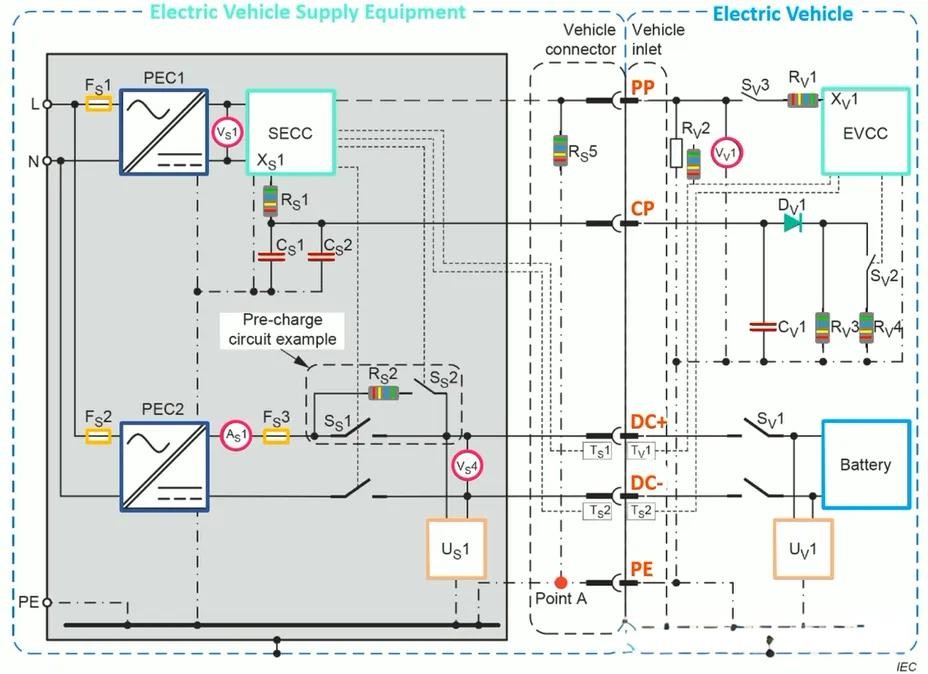
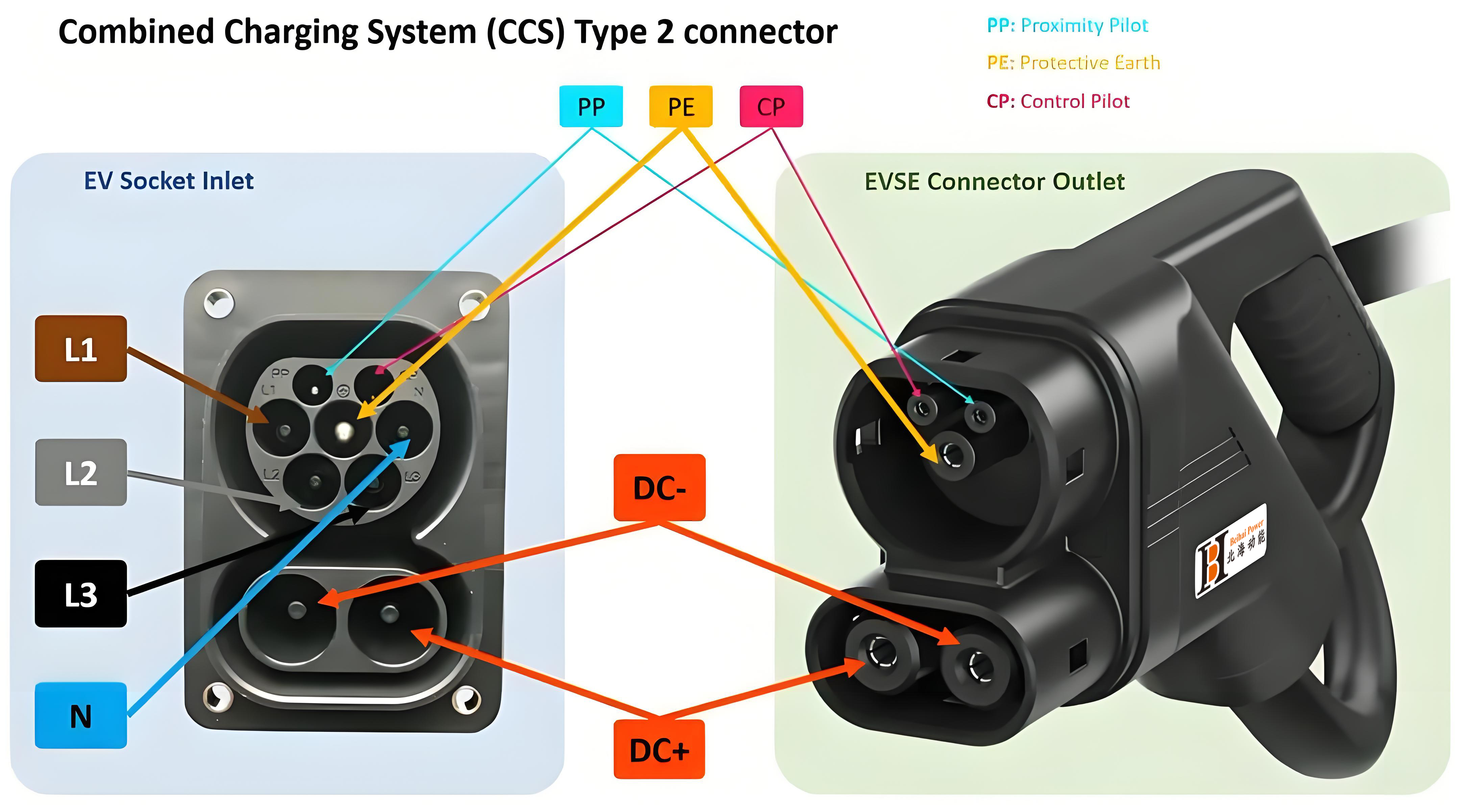
PLC power line communication
Unmatched
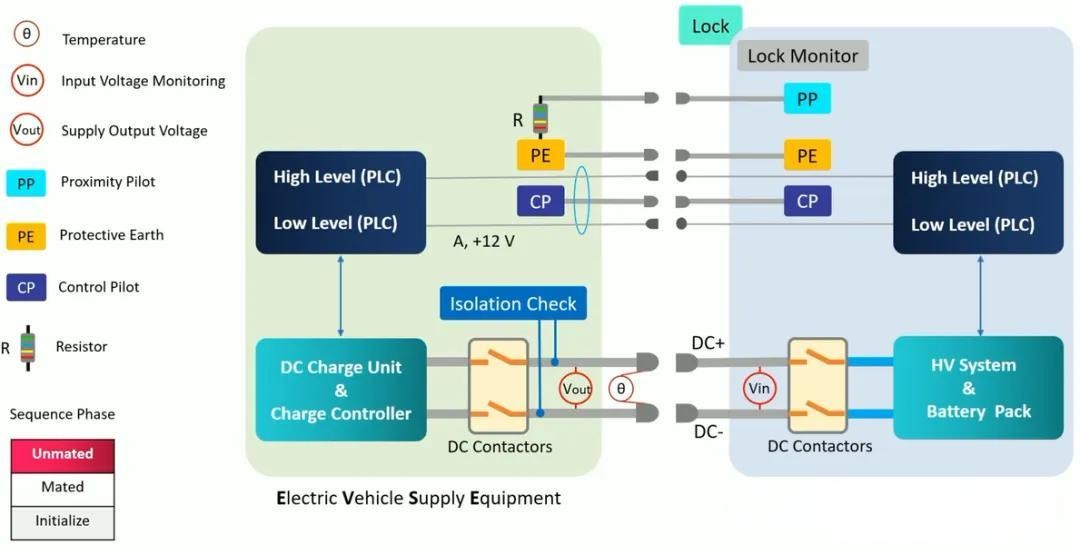
pair

initialization
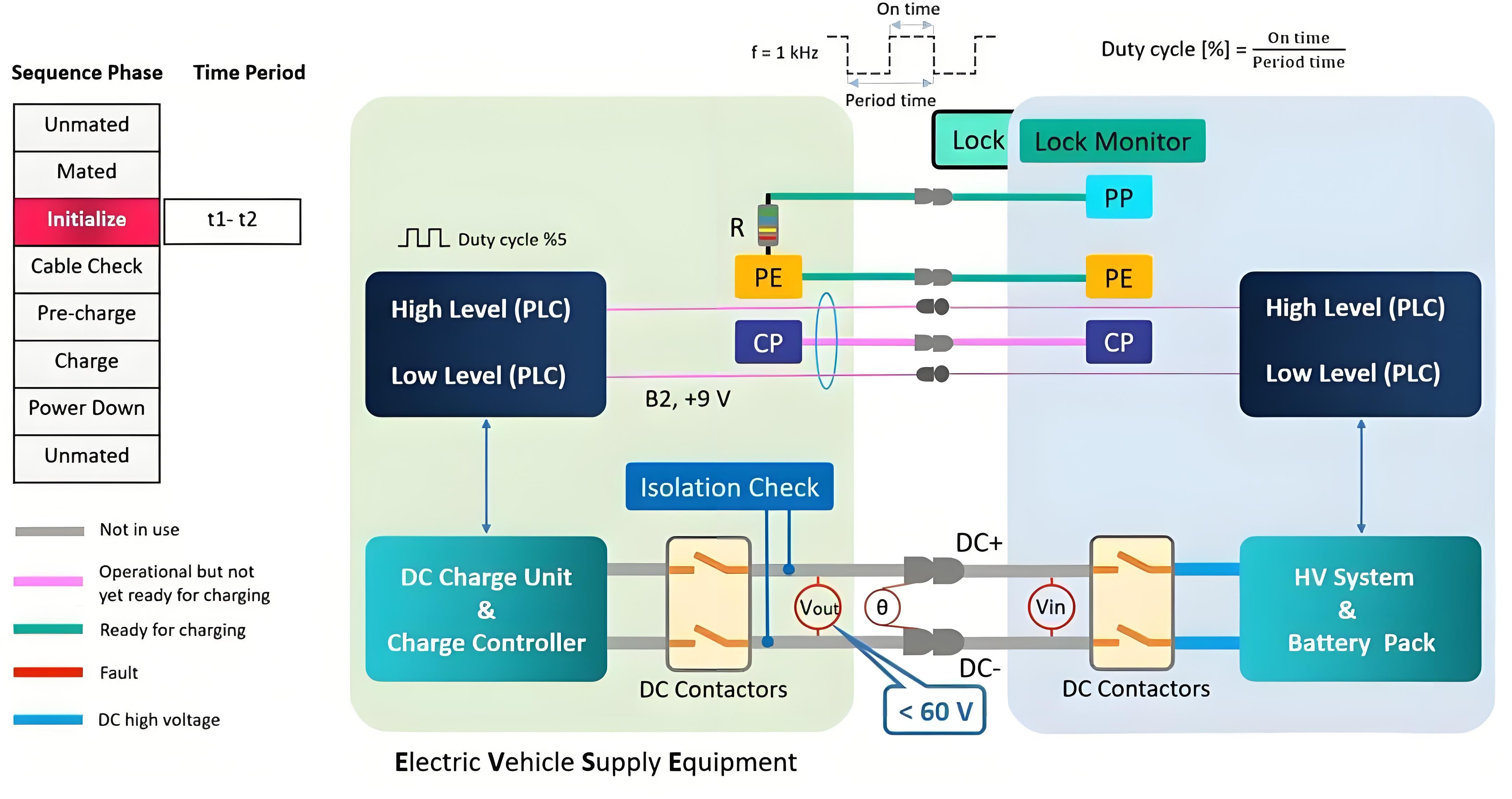
CableCheck insulation testing
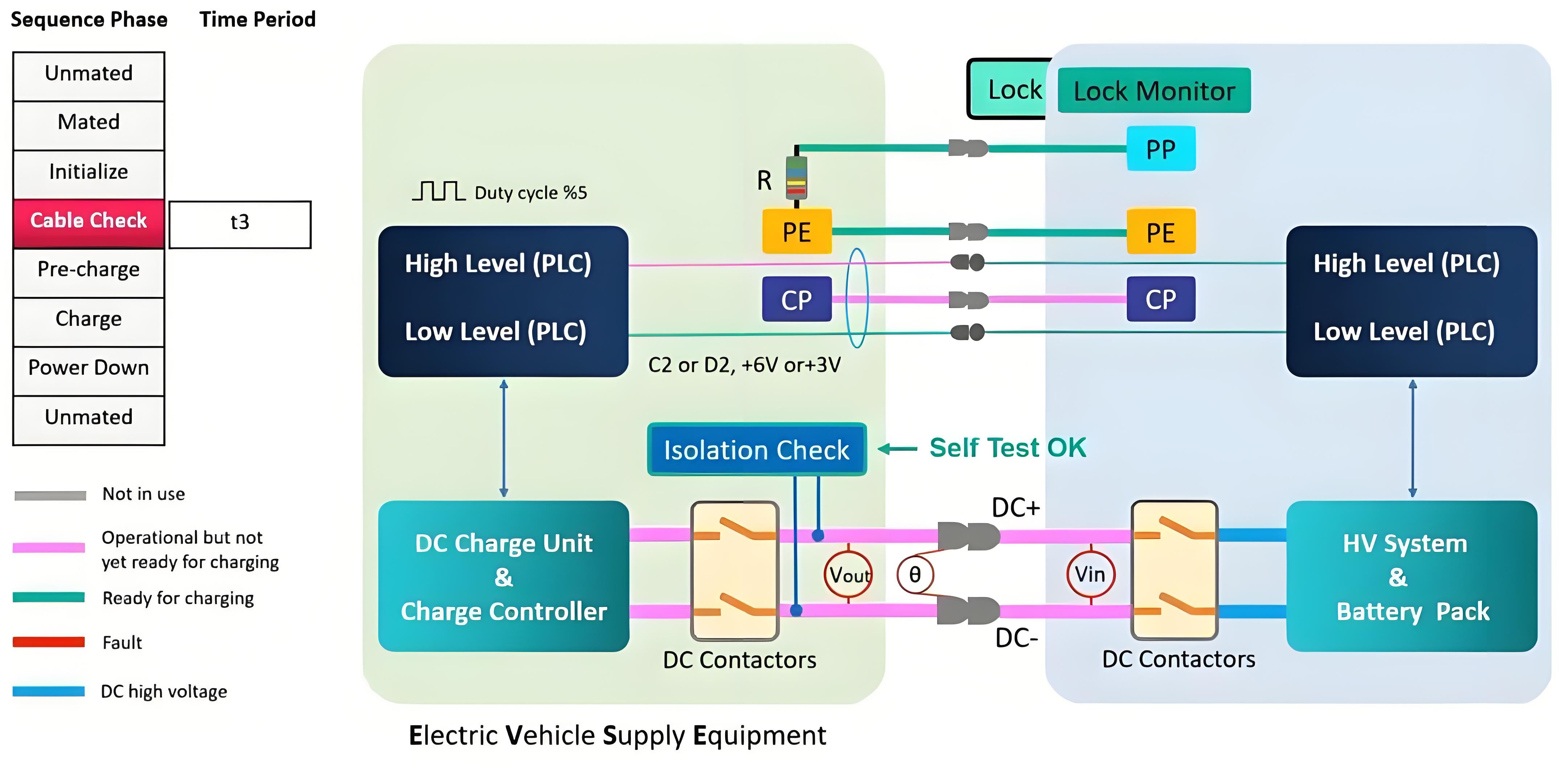
PreCharge
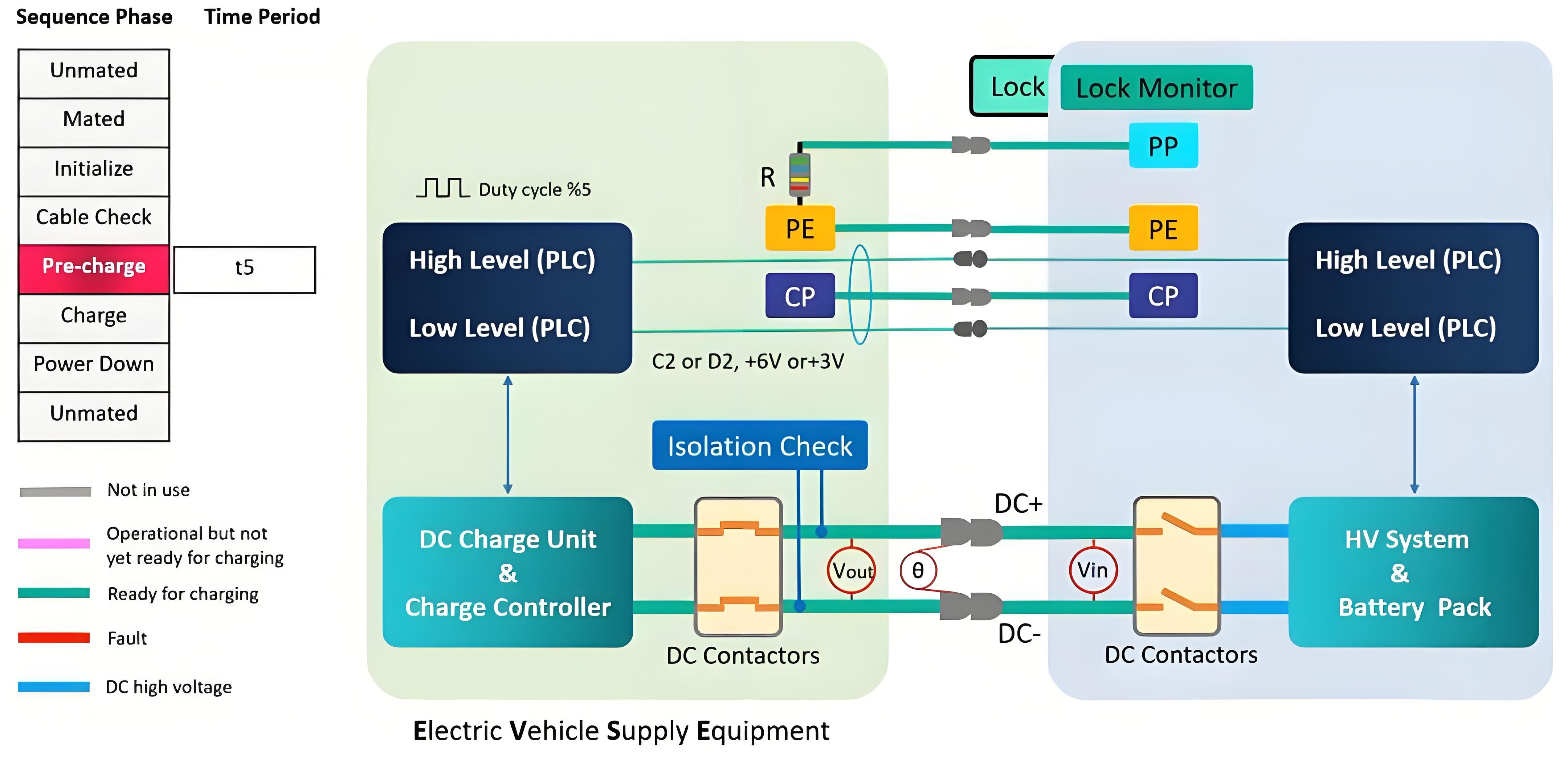
Enter charging
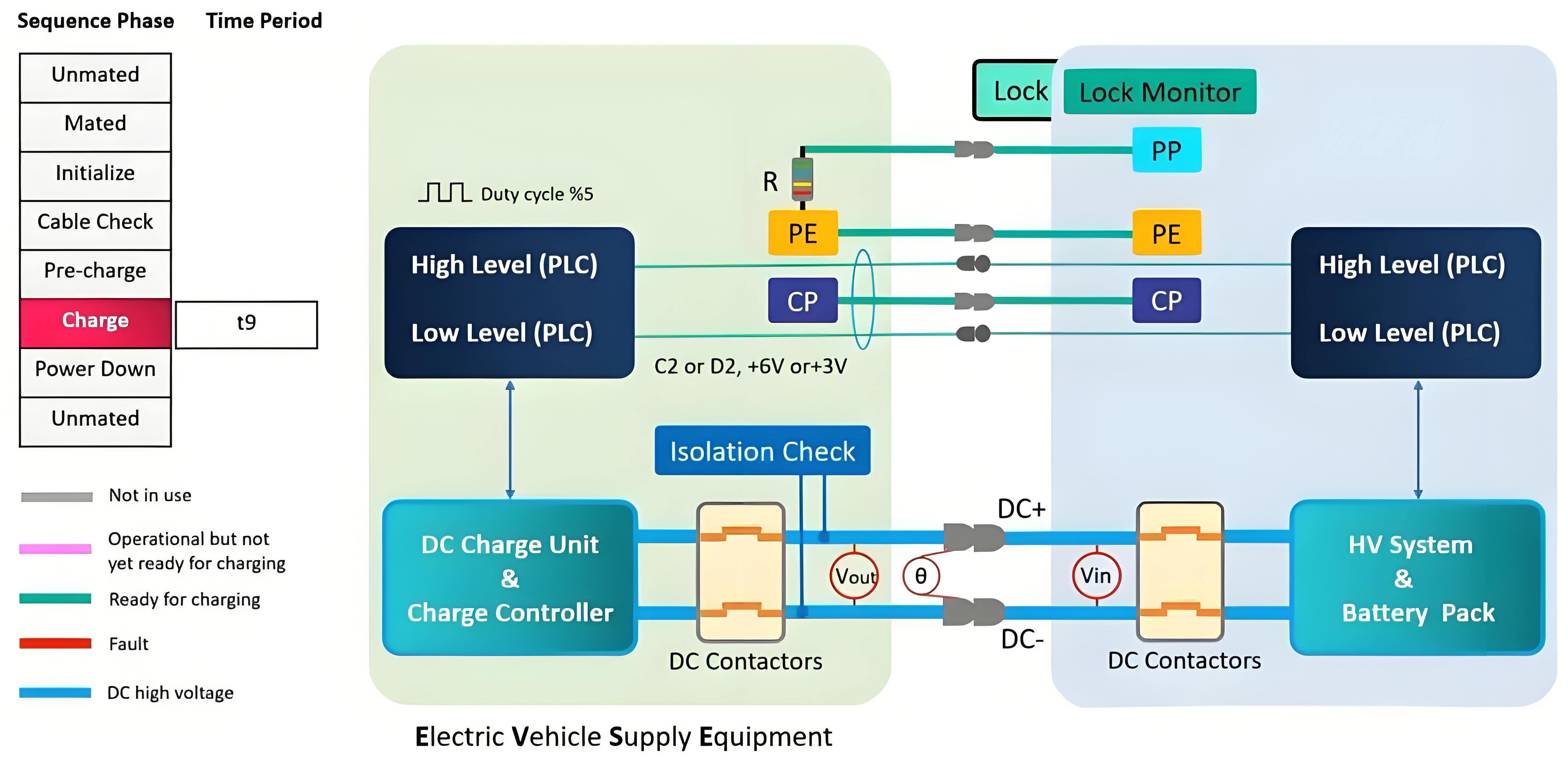
Charging stopped
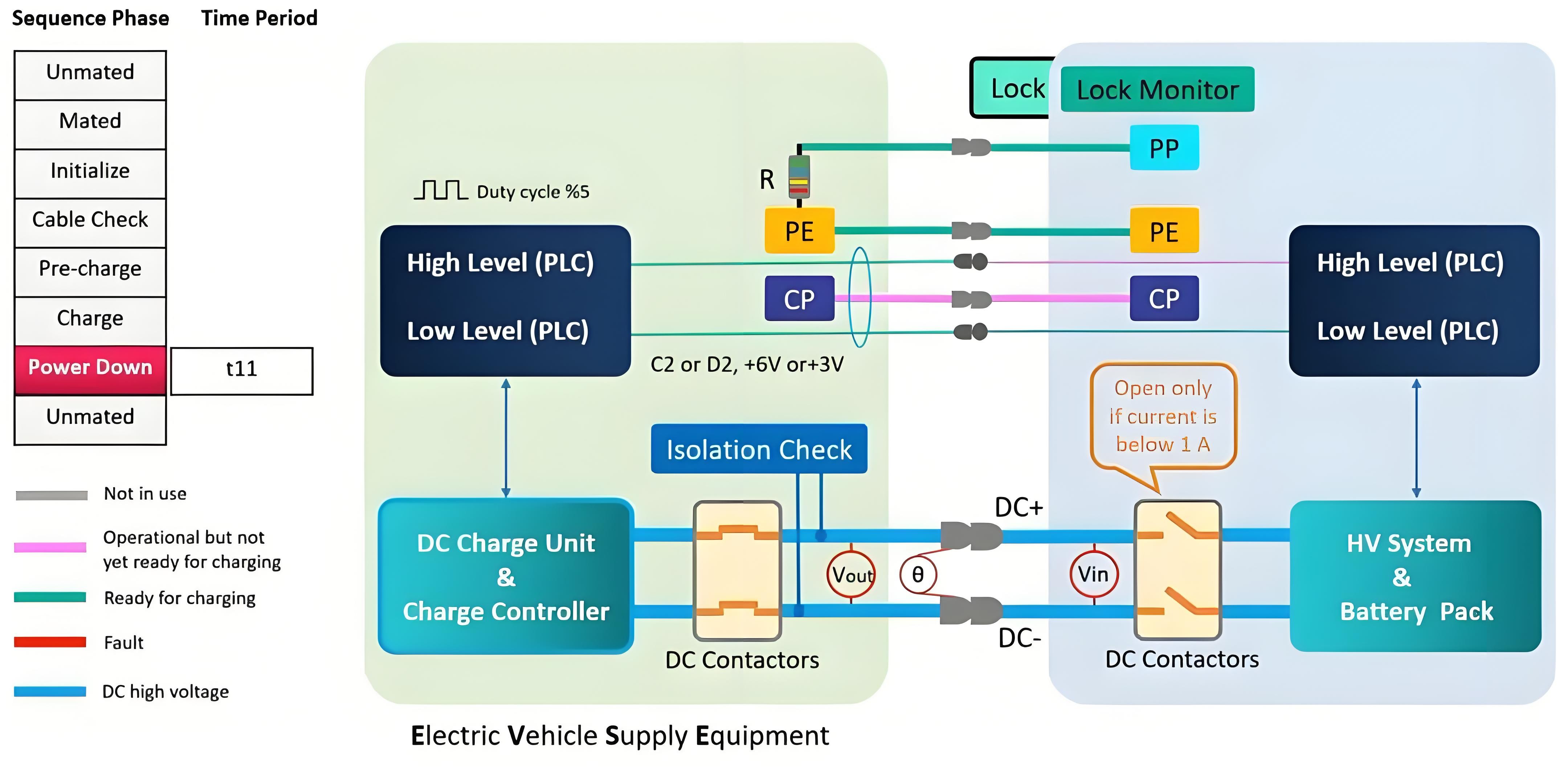
Disconnect

DC charging process from startup to energy transfer and shutdown
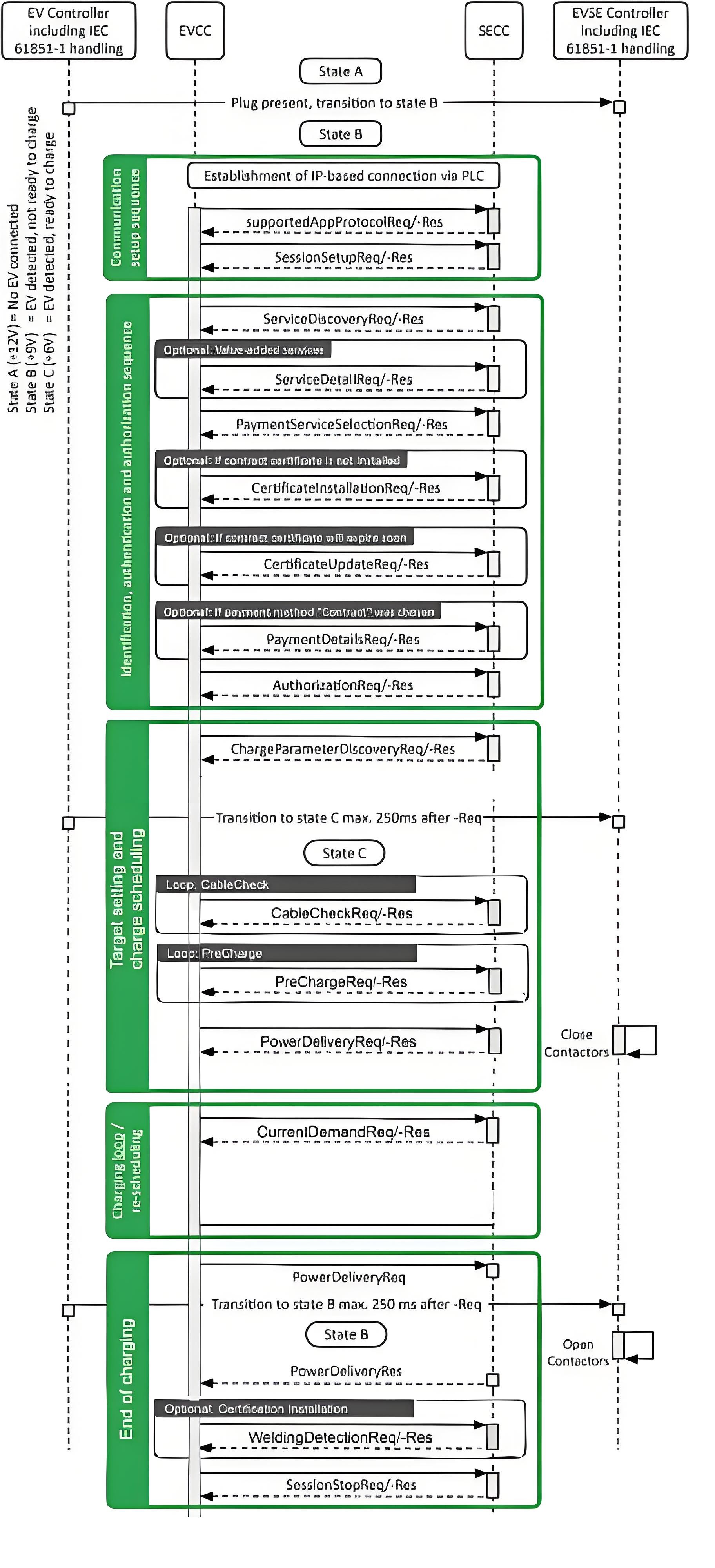
Signal Level Attenuation Characteristics (SLAC)
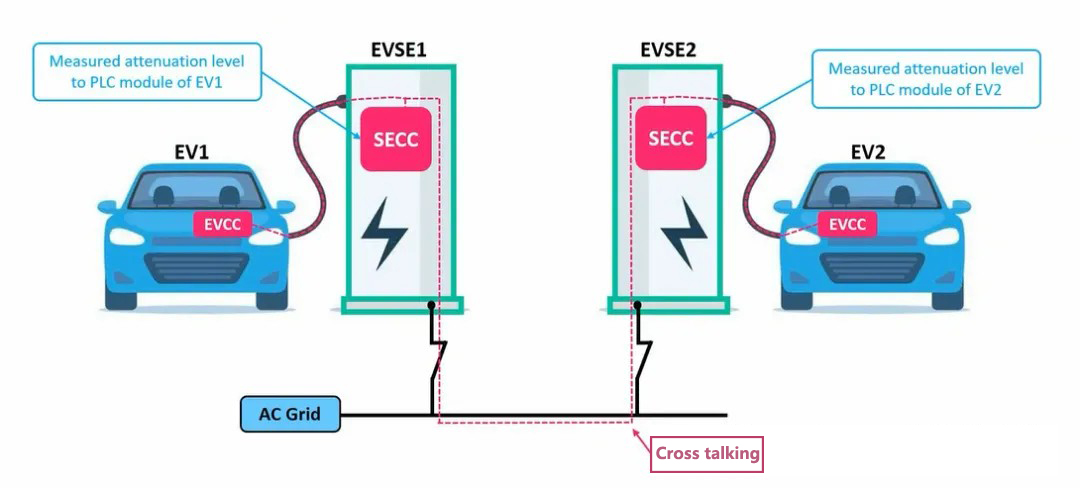
Home Plug Green PHY matching process sequence diagram
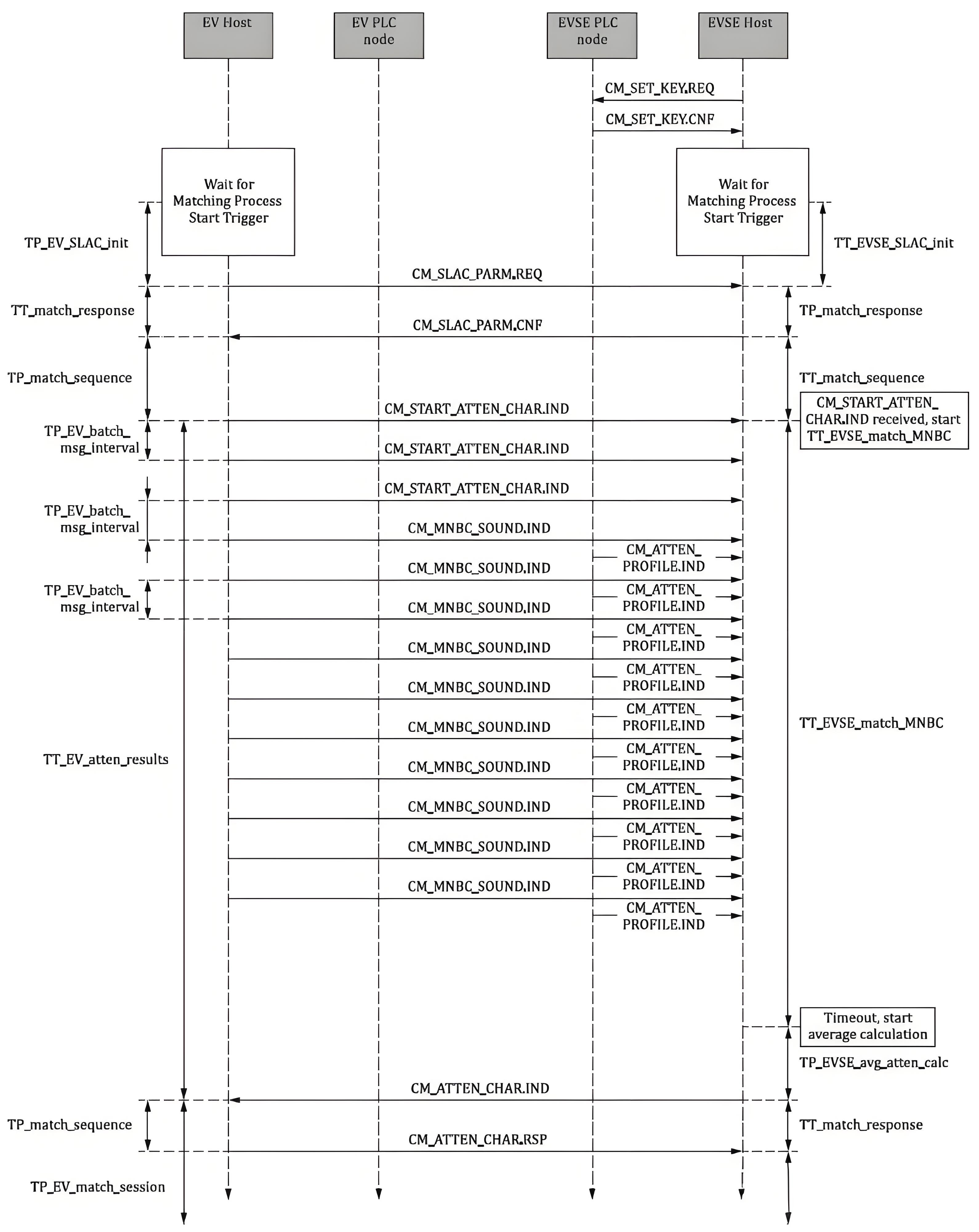
Pulse width modulation in AC/DC charging
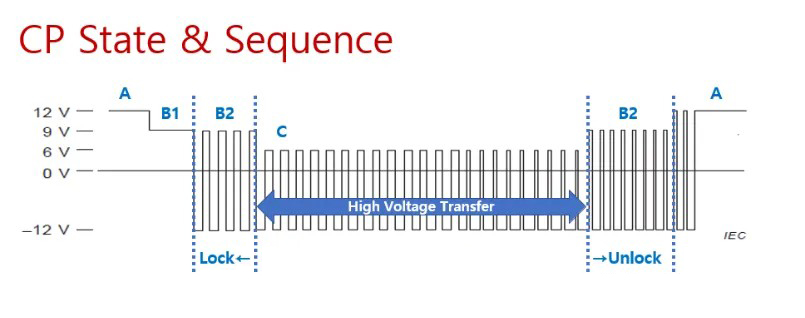
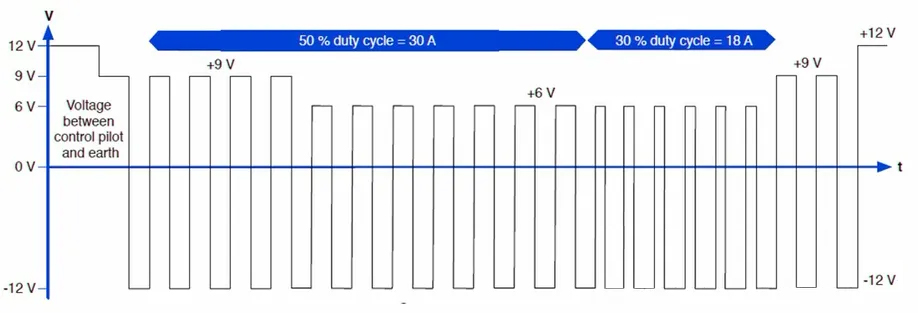
— THE END —
Here, understand the core and essence of charging stations.
In-depth analysis: How do AC/DC charging stations work?
Cutting-edge updates: Slow charging, supercharging, V2G…
Industry insights: Technology trends and policy interpretation.
Use expertise to safeguard your green travel.
Follow me, and you’ll never get lost when it comes to charging.
Post time: Nov-24-2025




